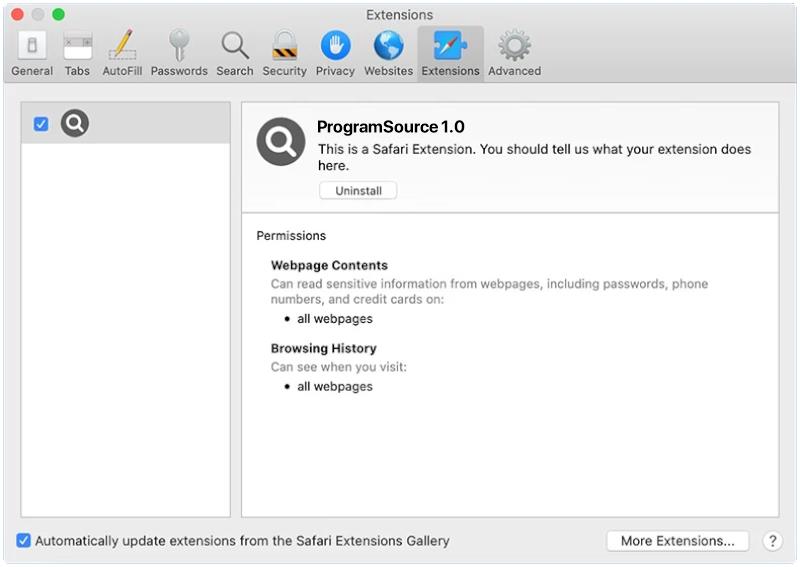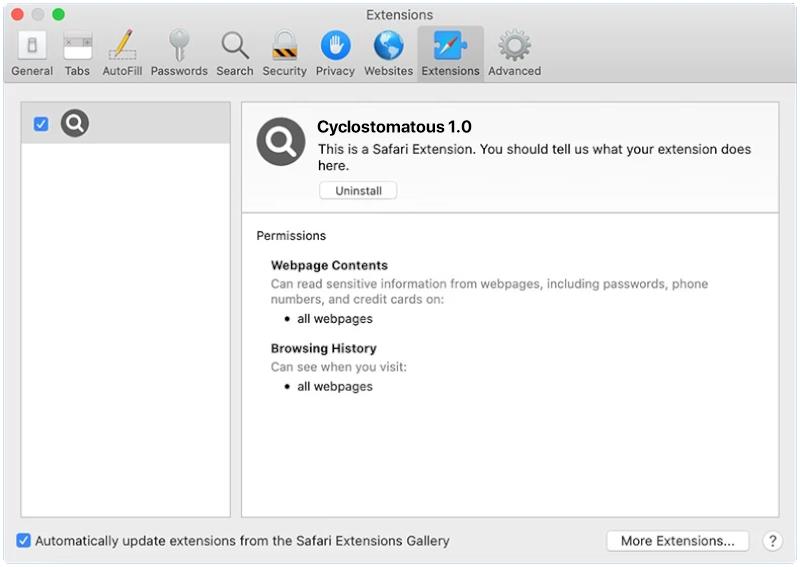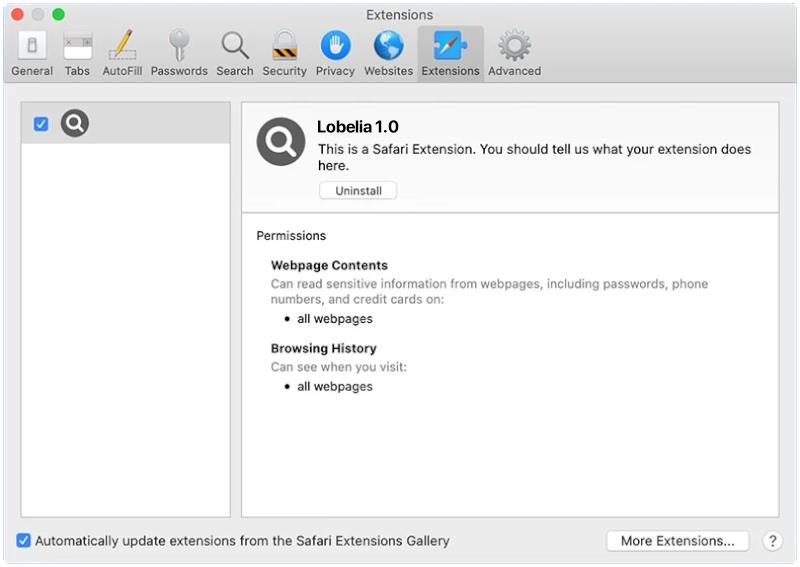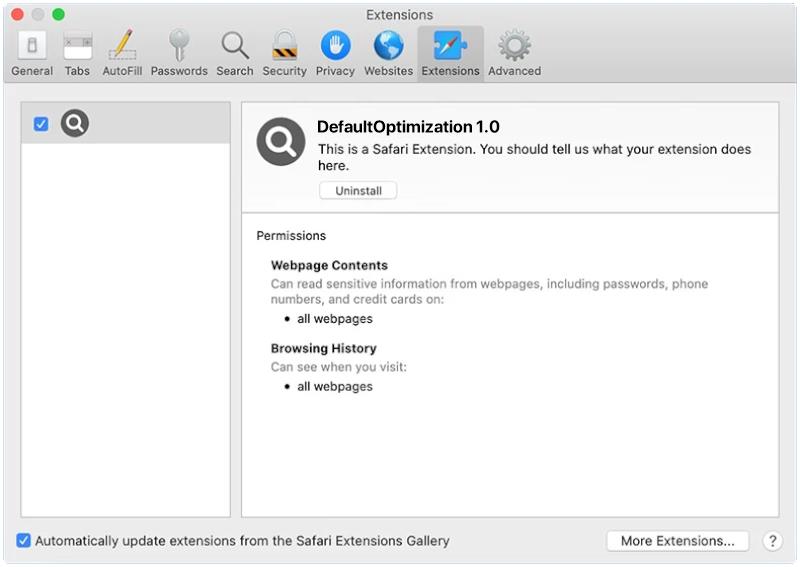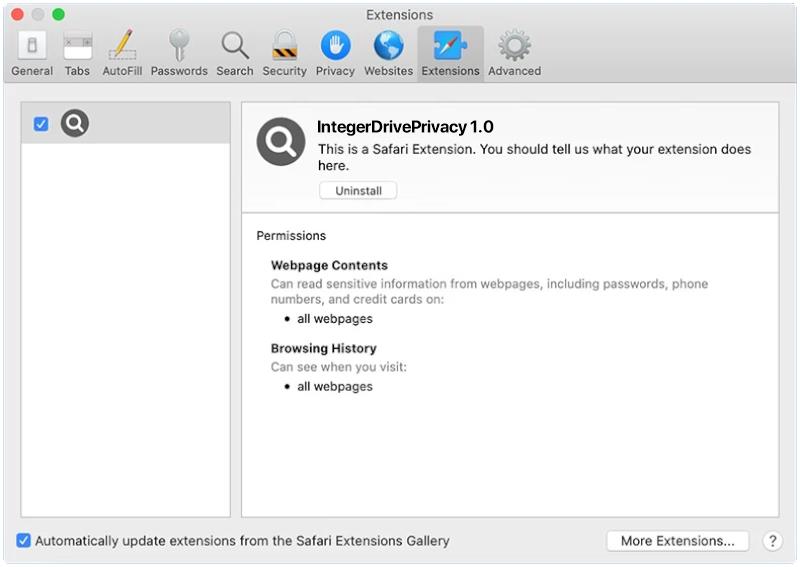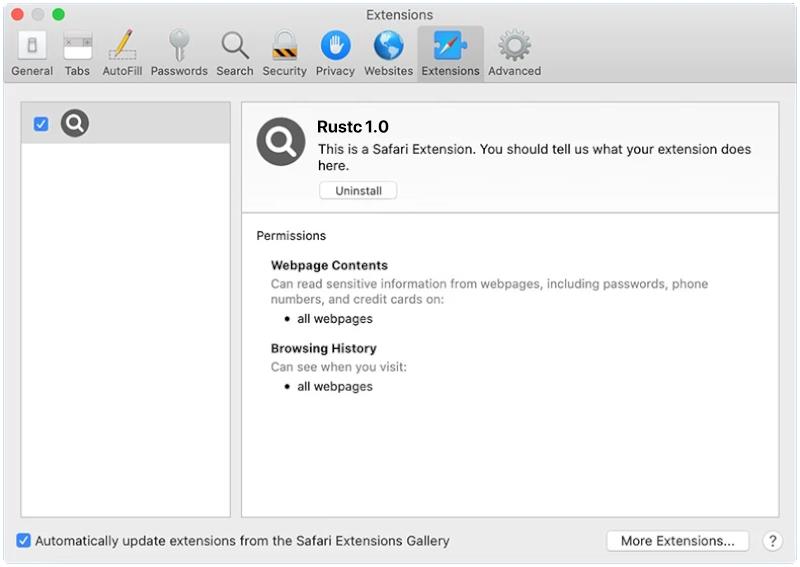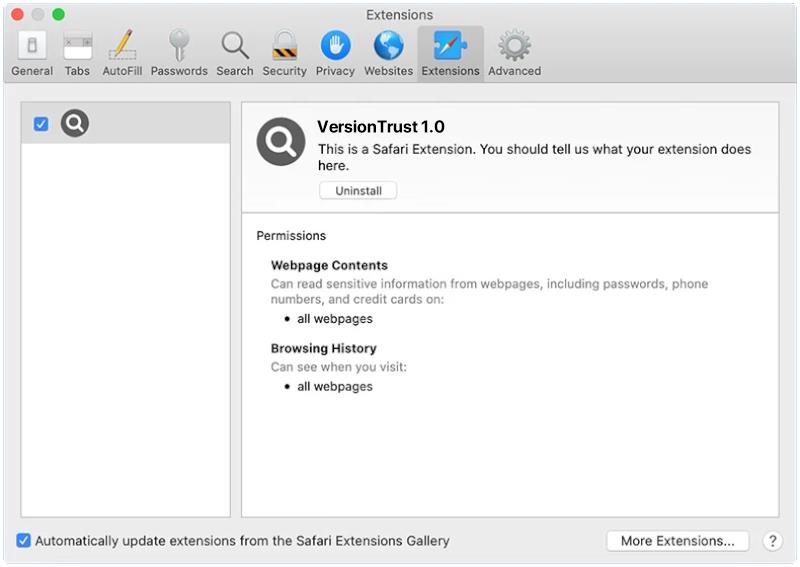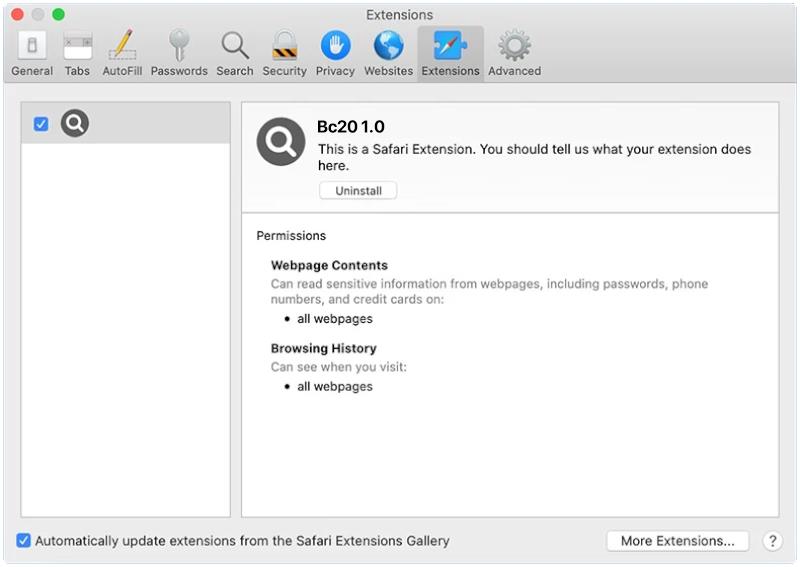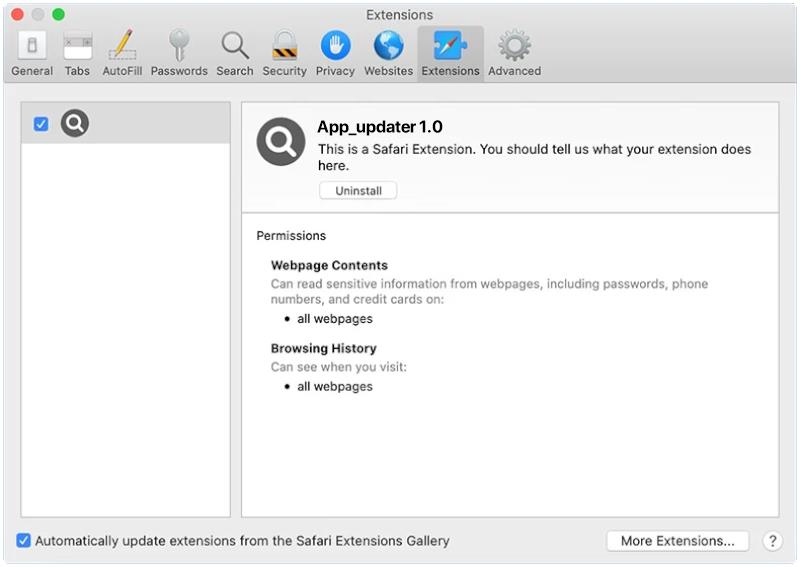ProgramSource is a type of malware that specifically targets Mac operating systems. It is designed to infect Mac computers and steal sensitive information such as passwords, financial data, and personal files. ProgramSource typically enters a Mac system through malicious email attachments, fake software updates, or compromised websites.
Once ProgramSource infects a Mac computer, it can perform various malicious activities such as keylogging, screen capturing, and remote access to the system. It can also download additional malware onto the infected computer, further compromising its security and privacy. ProgramSource is a dangerous threat to Mac users and can cause significant harm if not detected and removed promptly. It is important for Mac users to be cautious when downloading files or clicking on links, and to regularly update their security software to protect against malware like ProgramSource.

